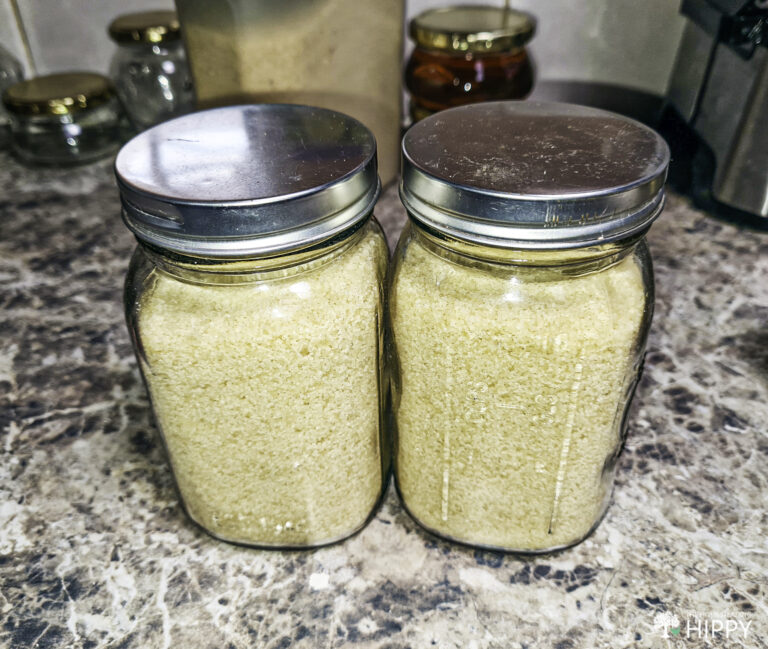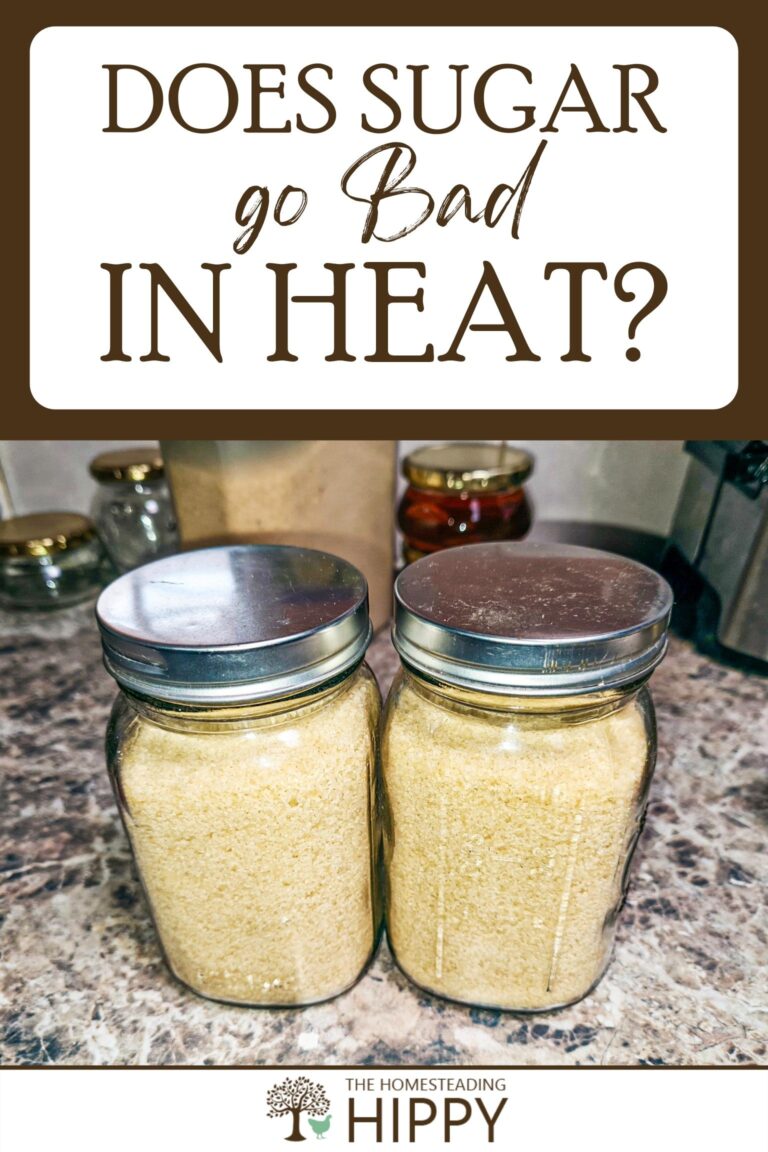Sugar is one of those kitchen staples that we often take for granted.

It’s always there, sitting in our pantries or cabinets, waiting to be used in our next baked dessert, spooned into a cup of coffee, or making a delicious pitcher of sweet tea.
But some folks assert that sugar can spoil when kept in a too-warm environment. Is that true? Does sugar go bad in the heat?
No, sugar does not really go bad or spoil in the heat. Sugar will clump and harden due to moisture reaching it in the air and this process is exacerbated by higher temperatures, but the sugar is generally still safe and usable.
However, as always, there is much more to learn about this topic than the simple answer.
Sugar does not usually spoil due to higher heat, but it can contribute to the spoilage of foods that are kept warm, but not hot.
Don’t worry, I’ll tell you everything you ever wanted to know about the topic below.
So sugar does not spoil when it gets too warm?
Correct: sugar does not spoil when it gets warm. This is because sugar is a highly stable compound that is resistant to chemical reactions and decomposition.
At room temperature, sugar can remain unchanged for years or even decades. Additionally, sugar also retains its sweetness in high temperatures.
So even if it gets exposed to heat or sunshine for prolonged periods of time, it will not go bad or seriously deteriorate.
While most foods go bad when they are exposed to excessive heat and sunlight, sugar remains safe.
However, when sugar is exposed to air, the molecules and then individual crystals begin to stick together, forming clumps.
The clumps will eventually harden until you have a rocky chunk of sugar! This process is accelerated by humidity, which is why sugar is more likely to clump in humid conditions.
This, as you likely already know, can cause problems when using sugar in the kitchen.
Aside from being harder to use and measure, clumped sugar will not dissolve evenly or completely in liquids and batters.
Can you still use sugar when it is hard and clumped?
Though sugar will inevitably sometimes clump up, making it difficult to measure and use, all is not lost.
Although the texture of hardened sugar might make it difficult to use in some cases, you can still get good results from clumpy or hard sugar if you are willing to restore its consistency.
For example, if your recipe needs dissolved sugar, then this is an ideal opportunity to put your hardened sugar to work.
Try adding some water and a bit of time to soften up the sugar granules before using them as normal. And even if you don’t need dissolved sugar, there are still plenty of other ways to salvage it.
You can grind it in a food processor or clean coffee grinder, or break it up in a bowl with a heavy spoon or pestle.
As a last-ditch effort, warm it gently in the microwave then stir it quickly; this might break up the consistency into something like wet sand, far more usable than it was.
So whether your sugar has gone rock-hard or simply clumped into larger crystals during storage, don’t worry: with a little creativity, that seemingly unusable sugar can still do just fine.
How can you prevent sugar from clumping?
Like our grandparents always said, “an ounce of prevention is worth a pound of cure.” There are a few simple ways to prevent sugar from clumping.
First, make sure that the sugar is stored in a totally dry, airtight container. If the sugar becomes damp, it will start to clump.
Second, try sifting the sugar before storing it. This will help to break up any small clumps that have already formed.
Finally, give your stored sugar a periodic brisk stir to help aerate it, and break up any clumps you cannot see.
Does sugar cause other foods to spoil in heat?
There is a lot of debate about whether sugar causes other foods to spoil more quickly. On the one hand, some argue that sugar attracts moisture, which in turn can encourage bacterial growth.
Others argue that sugar actually has an antibacterial effect, and that it may be used as a preservative itself to help products last longer.
In reality, both of these claims hold some truth. Sugar does attract water, thus potentially increasing the chances of bacterial growth in certain food products.
However, sugar also has an antibacterial effect on many foods, making them less susceptible to spoilage.
Then again, the sugar itself can feed bacteria, helping them flourish and multiply, thus greatly speeding up the spoilage of other foods.
Compared to something like salt, sugar is fairly lacking as a preservative in most cases.
So while sugar may not cause food spoilage to happen any faster, it could, especially when foods with high sugar content are warm but not hot enough to kill off the bacteria that promote spoilage.
In the end, sugar can prove to be a useful preservative, but it is a temperamental one.
The relationship between sugar and spoilage depends on many different factors and remains something of a tricky topic.
Nonetheless, with proper storage techniques and care, high-sugar foods can still be preserved for a long time.
Sugar Stays Sweet Despite the Heat
Sugar does not go bad or spoil just because it gets warm, or even hot. It will start to clump and harden, particularly in warm, humid conditions, but it will remain safe and edible.
You can still use sugar even if it’s clumped or hardened by breaking it up. By following our simple tips, you can ensure that your sugar will stay free of clumps, and ready to use in your kitchen.

Tom has built and remodeled homes, generated his own electricity, grown his own food and more, all in quest of remaining as independent of society as possible. Now he shares his experiences and hard-earned lessons with readers around the country.
Find out more about the team here.
